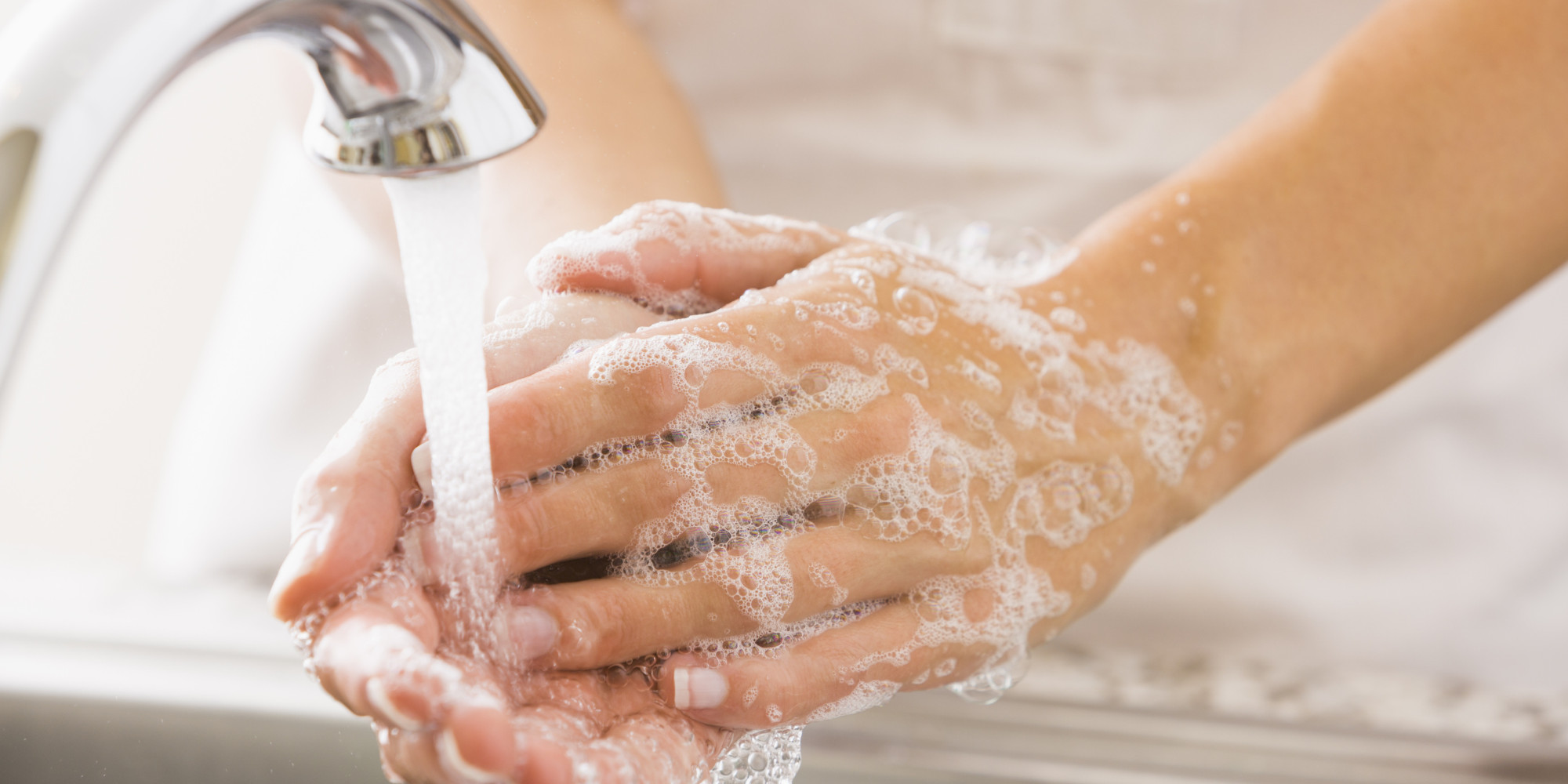All people have long known about the importance of personal hygiene in daily life. This is especially true for residents of cities where there is anthropogenic impact on the environment – it’s emissions and solid waste industries, the high gas content of the exhaust gases, dust, etc. – The atmosphere is full of toxins that have a negative impact on human health, reduced immunity. So why the clean hands is so important.
It is necessary not only to remove visible dirt, but also disease-causing bacteria. Proper hand washing – prevents microbes causing intestinal infection. But how can this be achieved? If soap hands once and quickly rinse with water for 5-10 seconds – from the the skin removed no more than 10% of germs. After coming back from the street, contact with animals, before eating you need to do this procedure slowly a few times soap your hands and rinse.
For example, Michigan State University carried out a study based on observations of the 3749 people in public restrooms, showed that among the all, only 5% have paid attention to this process, high-quality washed their hands, to avoid infections. And 33% of people just washed your hands with water without soap, and 10% did not wash their hands. Men wash their hands worse than women.

“These findings were surprising to us because past research suggested that proper hand washing is occurring at a much higher rate,” lead investigator Carl Borchgrevink, an associate professor of hospitality business at Michigan State University in East Lansing, said in a statement. Hand-washing saves lives, according to the Centers for Disease Control and Prevention. Proper technique can cut cold and flu risk, prevent the spread of foodborne illnesses and other infections in close settings like cruise ships and hospitals.
If you wash your hands not properly, it contributes to the appearance of almost 50% of all foodborne disease. The process takes 15 to 20 seconds of active hand washing with soap and water to effectively kill germs. The average hand-washing time was 6 seconds, far below the CDC’s recommended duration.
Borchgrevink, who used to work as a chef and restaurant manager before entering academia, said restaurant owners should be just as worried about the new findings as consumers. Students – the researchers were as inconspicuous as possible, stand aside and entered the results into a smartphone. For example, during the study were evaluated factors such as the duration of handwash and use of soap.
The concrete results: 15% of men do not wash their hands, as opposed to the 7% of women.
– When they washed their hands, only 50% of men used soap compared with 78% of women.
– People are less likely to wash their hands if the sink was dirty.
– People were more likely to wash earlier in the day, which suggests people out for a nighttime meal or drinks may not be as vigilant.
– The employees of hotels, restaurants more frequently wash their hands. K. Borchgrevink informed that hygiene is importance both for consumers and for the employees of restaurants and hotels. “Imagine you’re a business owner and people come to your establishment and get foodborne illness through the fecal-oral route — because people didn’t wash their hands — and then your reputation is on the line,” he said. “You could lose your business.”
Quick tips:
1. Remove jewelry from hands, roll up your sleeves, turn on the warm water, apply soap and soap vigorously 20 seconds.
2. Rub the palm to palm, and do not forget the wrist.
3. With the palm of the right hand handle the back of the left hand and vice versa including the spaces between the fingers, as well as thumbs.
4. Dry hands with a towel. Towel removes residual detergent and dead cells from the skin.
Source: Infection Control Today





